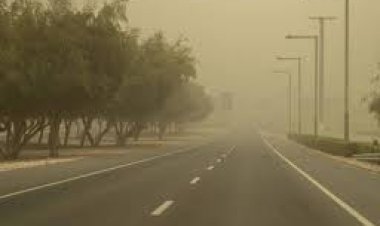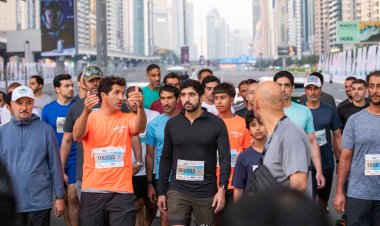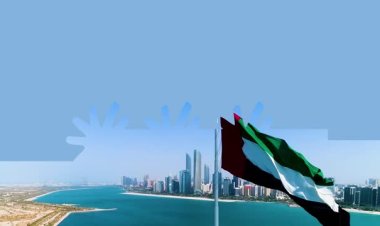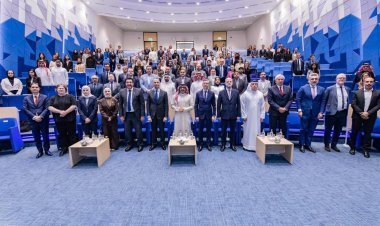Gulf Workshop Reinforces Unified GCC Position on Energy and Climate Challenges
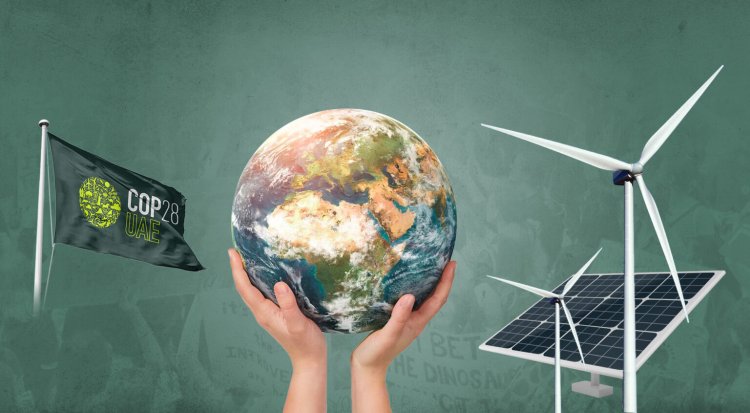
KUWAIT: The Ministry of Oil, in partnership with the Saud Nasser Al-Sabah Diplomatic Institute and the General Secretariat of the Gulf Cooperation Council (GCC), hosted a high-level Gulf workshop on Sunday titled “Strengthening the Gulf Message on Energy and Climate Issues.” The event, attended by Oil Minister Tareq Al-Roumi, aimed to reinforce the region’s unified stance amid intensifying global debates surrounding energy transition and climate responsibility.
Following the workshop, Minister Al-Roumi expressed pride in Kuwait’s hosting role, highlighting the strong coordination between the Ministry and the Diplomatic Institute. He praised the workshop’s scientific content and high-calibre presentations, noting that they strengthen the GCC’s position as a central voice in shaping global discussions on energy and climate. He reaffirmed Kuwait’s commitment to initiatives that elevate the country’s global presence and support coordinated regional approaches to energy policy.
Addressing participants, Assistant Foreign Minister for the Diplomatic Institute Ambassador Nasser Al-Subaih said the workshop comes at a time of increasing international pressure on oil- and gas-producing nations. He stressed that while Gulf states remain committed to climate action, ongoing global debates often overlook the historical responsibility of industrialised countries for accumulated emissions, as recognised under the principle of common but differentiated responsibilities in the Paris Agreement.
Al-Subaih emphasised that selective criticism and misinformation frequently overshadow scientific facts and undermine oil-producing states’ rights to development and a just energy transition. Such narratives, he warned, risk destabilising exports, economic sectors, and the global energy market. He added that energy and climate issues now significantly influence human rights, including access to clean water, food, health, housing and sustainable development making it essential for the Gulf to articulate a narrative rooted in scientific evidence.
He underscored that GCC oil and gas exporters are not contributing to the problem but are actively part of the solution, investing heavily in renewable energy projects, green hydrogen, low-carbon technologies, and international sustainability initiatives.
Undersecretary of the Ministry of Oil Sheikh Dr. Nimer Fahd Al-Malik Al-Sabah highlighted the workshop’s importance amid global energy market volatility. He stressed the need for closer GCC coordination to deliver a unified message internationally, particularly on energy security and the Gulf’s balanced, responsible approach to environmental protection. He also emphasised the media’s role in communicating the GCC’s vision for climate adaptation and a fair energy transition.
Sheikha Tamadher Khaled Al-Ahmad Al-Sabah, Director of the Public Relations and Petroleum Media Department, noted that the workshop reflects Kuwait’s commitment to developing specialized media discourse on energy and climate. She said the initiative aims to equip non-media professionals with communication and analytical skills to accurately represent Gulf sustainability efforts, emissions-reduction strategies and resource-efficiency initiatives. She added that a unified Gulf narrative is vital as global misinformation increases, stressing the need for data-driven messaging to communicate the region’s balanced and scientifically grounded energy policies.
The workshop featured two sessions.
The first, “Gulf Media and Energy,” included speakers such as Ahmed Al Kaabi, Assistant Undersecretary for Electricity, Water, and Future Energy at the UAE Ministry of Energy; Yousef Ashmawi, Advisor at the Saudi Ministry of Energy; Jamal Al Loghani, Secretary General of the Arab Energy Organization; and Mohammed Al-Shatti, Kuwait’s Governor to OPEC.
The second session, “Public Awareness of Energy and Climate Issues,” included Ahmed Al Haddad, Head of Public Relations at Bahrain’s Ministry of Oil and Environment; a production engineer from Oman’s Ministry of Energy and Minerals; Salah Al-Hajri; and OPEC Governor Mohammed Al-Shatti. Both sessions were chaired by Dr. Mohammed Al-Rashidi, Head of the Human and Environment Sector at the GCC General Secretariat.









